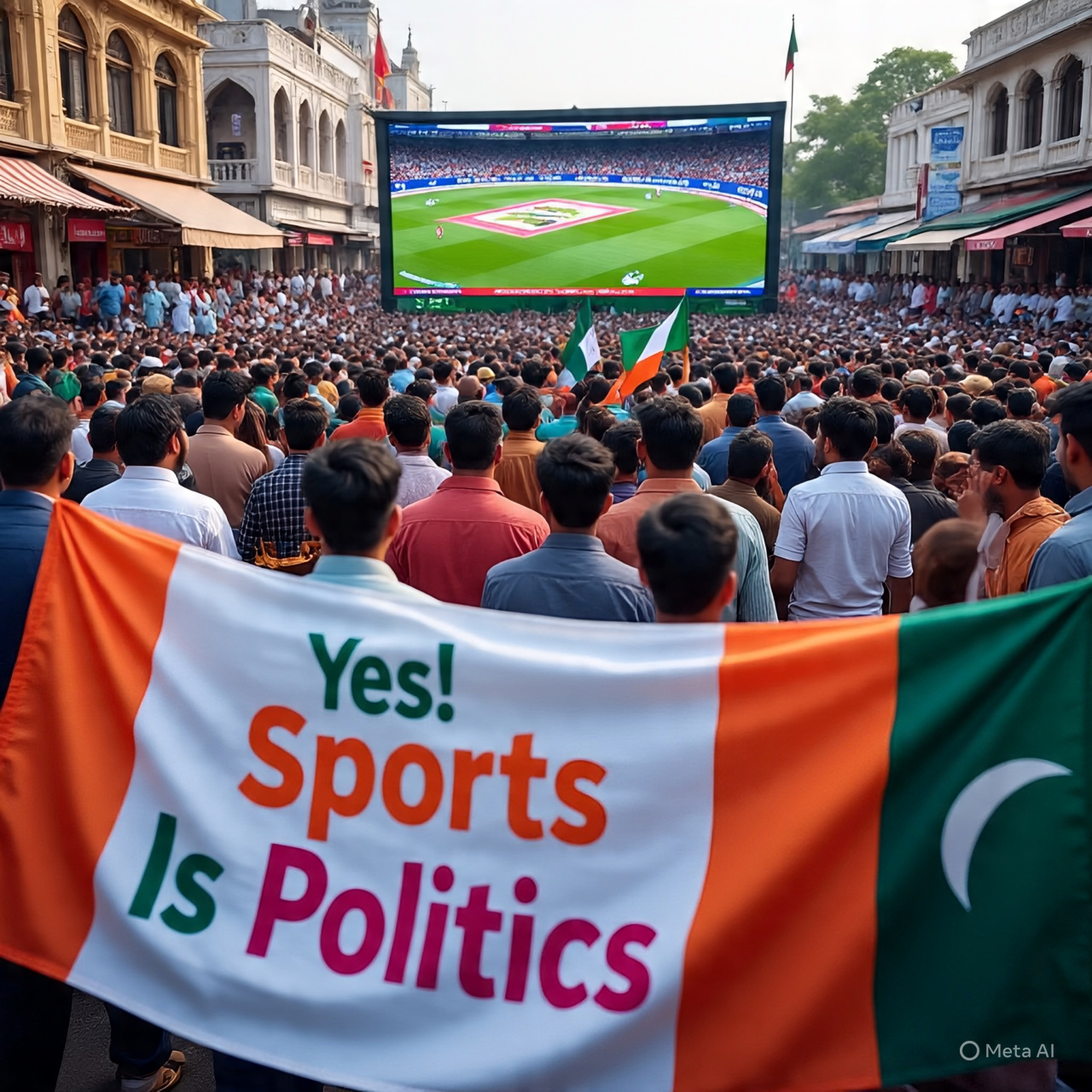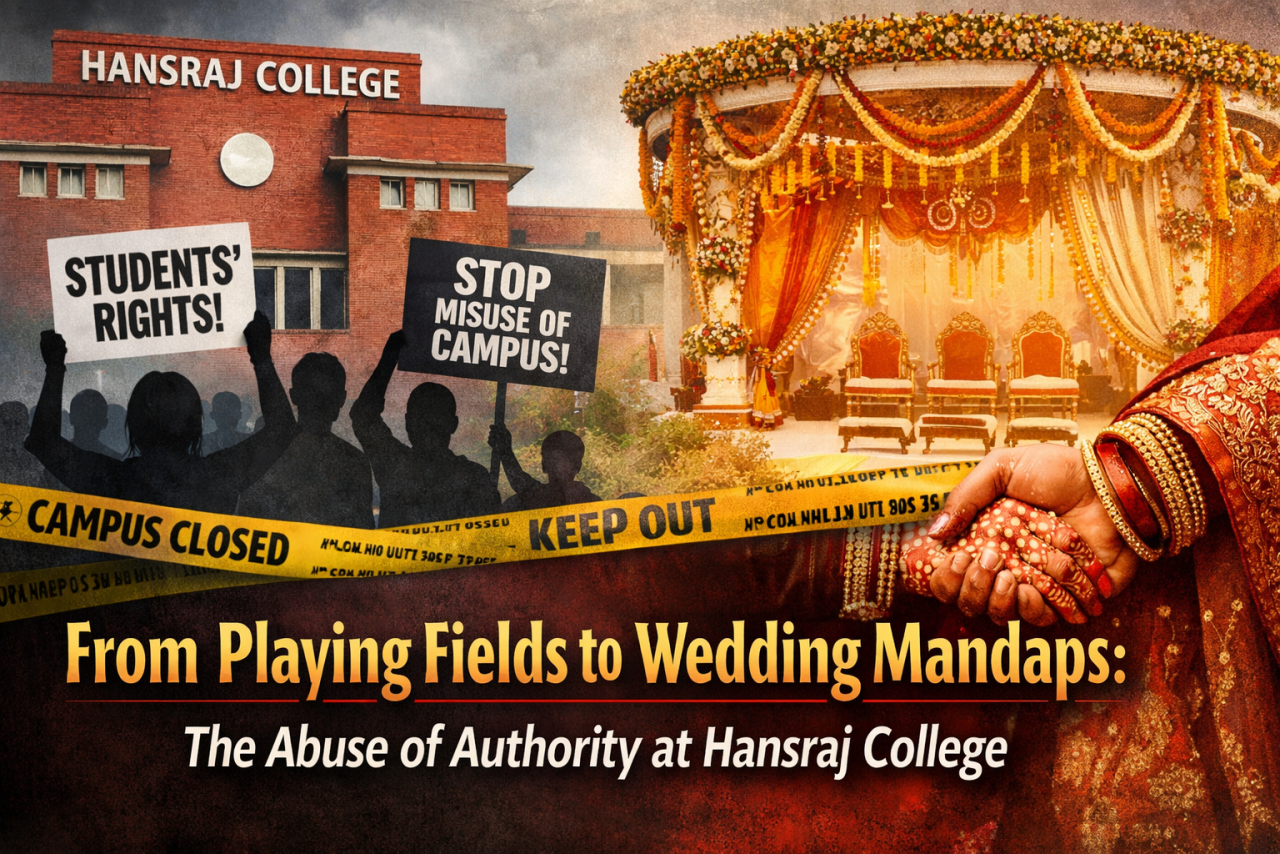
On the evening of September 14, cricket once again abandoned its mask of a gentleman’s game. India met Pakistan in the Asia Cup, and the contest was not framed by statistics but by the fumes of war. Pahalgam had bled days earlier; Operation Sindoor was India’s stern reply. The cricket ground, therefore, was never destined to be a sanctuary. When the Indian captain declined the courtesy of a handshake, and Suryakumar Yadav offered his team’s victory to soldiers rather than coaches, the chorus of commentators returned to their familiar refuge: “Keep politics away from sport.”
It is a comforting illusion, but an illusion nonetheless. Politics and sport are not parallel lines; they are entwined like roots of the same tree. Politics manages people; sport celebrates them. One governs, the other entertains — but both embody national identity. To argue that sport can remain insulated from politics is to suggest that rivers can flow without water.
Symbolism Beyond the Scoreboard
Consider an India-Pakistan match. No spectator believes it is merely about overs and run rates. Every boundary pierces history; every wicket reopens disputes left unresolved by diplomats and generals. When India prevails, the stands erupt not only for cricket but for the reaffirmation of pride, bruised and battered on battlefields. Sport here is not escapism; it is a continuation of conflict by other means.
The refusal to shake hands may not feature in coaching manuals, but it fits the story of a nation still in mourning. Yadav’s dedication was no breach of etiquette; it was the natural instinct of a citizen in a national jersey. Critics forget that players do not float above society. They breathe the same air, grieve the same tragedies, and rejoice in the same victories as the public they represent.
History’s Long Memory
If one seeks examples where sport escaped politics, one will search in vain. Jesse Owens at Berlin in 1936 shattered the creed of racial supremacy, not with words but with speed. South Africa was exiled from cricket for the sin of apartheid, proving that morality in politics could, and must, shape the fate of sport. Today, Ukrainian athletes refuse to compete with Russian counterparts, not from pettiness but principle.
India’s story is no different. Even after Operation Sindoor, India did not boycott Pakistan in the Asia Cup; restraint itself was sportsmanship. The refusal to shake hands was customary, not a violation. Indian players did not abuse, did not provoke, did not dishonour the field. They played, they won, and they carried the sentiment of a nation that bleeds but does not forget. Nor was this without precedent. In 1999, while soldiers fought in Kargil, the Chennai Test against Pakistan unfolded with dignity. History shows that Indian cricket has walked through the storm of politics without surrendering grace.
The stadium has always been a stage where power, ideology, and identity share space with the game. And athletes, being citizens first, inevitably carry their nation’s wounds. To express them is not a crime; it is the essence of representation.
India’s Cricketing Consciousness
In India, cricket is a parallel parliament, not a pastime. Here, language, caste, and class dissolve into the tricolour. Yet cricket is also a mirror of politics. When India suspends bilateral cricket with Pakistan after terror attacks, that is not the distortion of sport; it is the definition of policy. When victories are dedicated to soldiers, it is not propaganda; it is gratitude made audible to millions.
To demand a firewall between sport and politics is to misunderstand both. The roar in a stadium is no different from the applause in a legislature: both are the sound of collective will. The tricolour waved in the stands is the same flag draped upon a martyr’s coffin. The difference is not of essence, only of arena.
The Futility of Pretence
Those who argue for purity in sport may be guided by noble instinct. But nobility must yield to truth. Sport without politics is theatre without audience — elegant in theory, irrelevant in practice. Nations do not pour billions into sport merely for records; they invest because every medal, every trophy, every Cup becomes a metaphor of power and prestige.
When India defeats Pakistan on a cricket field, it is not merely a line in a scorebook. It is reassurance that adversity can be overcome, that the flag will not be diminished. That reassurance is political by its very nature.
Final Take
Let us, then, end the pretence. Sport and politics are not adversaries; they are allies. One supplies the theatre of emotion, the other lends it meaning. Without politics, cricket is only wood striking leather. With politics, it becomes saga — of pride, defiance, and identity.
Yes, sport is politics. Perhaps that is why a cricket match can heal wounds, deepen scars, or even stand in for war itself. The scoreboard tallies runs; history tallies the mood of a nation.






















Gunja Jha
4 months agoWell expressed thoughts that connect sports and politics beautifully.